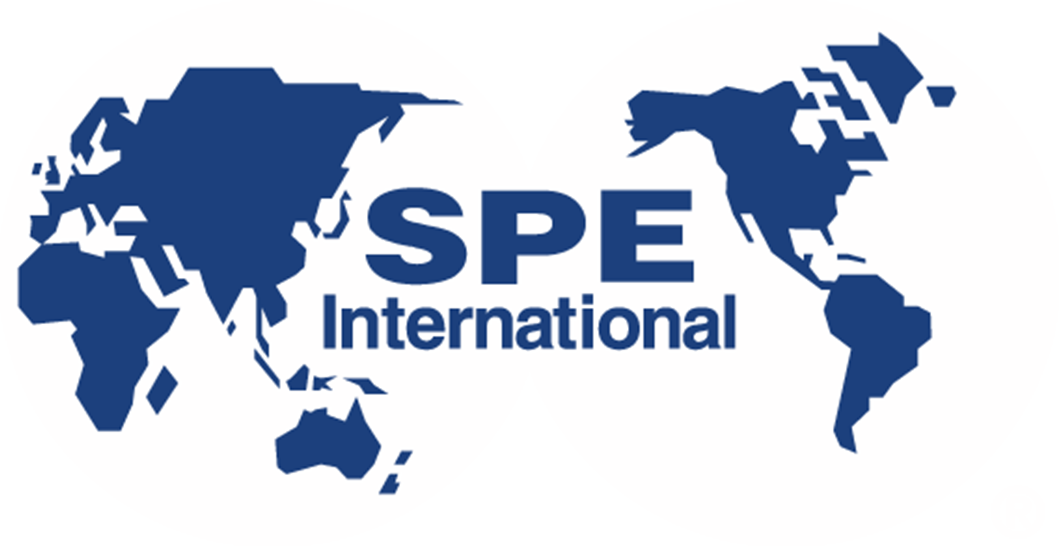Agenda
The workshop starts at 13:30 hours GST/UTC+4 on each day.
Please join based on your local time:
- 03:30 hours - USA (Central Time)
- 09:30 hours - Côte d'Ivoire / Ghana
- 10:30 hours - Angola / Nigeria / UK
- 11:30 hours - South Africa
- 12:30 hours - Kenya / Uganda
- 13:30 hours - Abu Dhabi / Dubai / Muscat
Tuesday, May 25
Keynote Speaker(s):

Grace Amadi
Waltersmith - Petroman Oil & Gas
Moderator(s):

Isaac Akanko
West African Rescue
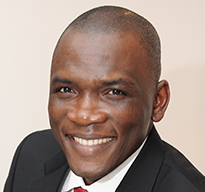
Patrick Awotula
OES Energy Services
Presenter(s):

Dennis Addo
Claron Health

Uche Okorocha
Stripes Health Services Limited

Ntokozo Mashita
Eskom
COVID-19, the pandemic nobody expected, has significantly affected the oil and gas industry worldwide. We have seen and are experiencing the severe disruptions it has caused, ranging from momentary to long-lasting, forcing us to adapt the ‘old ways’ of doing things in a ‘new normal’ era.
For our industry, HSE remains at the forefront as we work to understand and plan for the challenges COVID-19 has brought, and may continue to bring. In this session we will be exploring the impact and implication(s) of the pandemic in the following areas:
- The responsiveness and preparedness of organisations in the region and how infrastructure in Africa played a part.
- Why plans for business continuity are vital in developing risk assessments.
- Identifying the Mental Health Awareness gap in light of COVID-19.
- Redeveloping HSE policies as our understanding of COVID-19 frequently evolves.
As it stands, there are potential effects of the pandemic that are yet to be realised and we cannot anticipate what these may be or when they will occur, however this session will help foster discussions on forward-thinking concepts based on lessons learnt, collaboration with governing bodies and regulators, and a holistic approach to improving current HSE practices and systems to meet the demands of our ‘new normal’ in a transformative way.
Session Co-Chair(s):
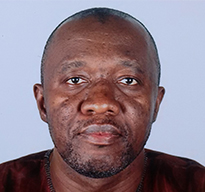
Chigozie Egbunefu
Oando Energy Resources

Johnson Kotey
Independent Consultant
Presenter(s):

Patrick Osad Eronmwon
West African Gas Pipeline
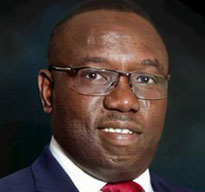
Adebola Bada
TOTAL Nigeria/SPE Section - Port Harcourt, Chairman
Presentations:
1525-1545
Safe Execution of Takoradi-Tema Interconnection Project (TTIP) - a Project that Rebirth WAGP
Patrick Osad Eronmwon, West African Gas Pipeline
1545-1605
Occupational Safety and Health Policy for the Oil & Gas Industry: Perspectives Towards an Agile and Sustainable Collaboration in the African Region
Adebola Bada, TOTAL Nigeria/SPE Section - Port Harcourt, Chairman
Petroleum operations which cover exploration, construction, production activities, and other servicing activities involve workers interacting with various types of equipment and materials. Safety plays an important role in the protection of lives, company assets, the environment, and the reputation of any organisation. Safety is one of the key factors which allows companies to operate efficiently and without major incidents. Unsafe actions and conditions are the main causes of accidents which may result in minor or major fires, harm to workers, impacted environment, and other consequences.
Unintended releases of toxic, reactive, or flammable liquids and gases in processes have been reported for many years in the petroleum industry, as having led to the loss of lives and billions of dollars lost in damages to assets, compensations, fines and restoration activities. Some examples are the Piper Alpha incident, the Macondo blowout, the Texas City Refinery fire, Buncefield fire and many others.
To help ensure a safe workplace, industry regulators across the globe have issued various standards and guidelines which contain requirements for the management of major accident hazards associated with processes that have a high probability of accidents. This involves having in place a comprehensive safety management programme and risk assessment process that integrates technologies, procedures, competence, and management practices to ensure accidents are eliminated or reduced to as low as reasonably practicable.
The safety session for this workshop will focus on process safety, asset integrity, and other processes that guarantee the safety of personnel and others in petroleum operations.
Session Co-Chair(s):
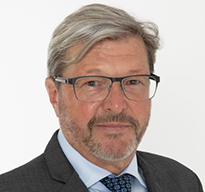
Henry Camp
Camp Consult

Adetoun Mustapha
Shell Nigeria E&P
Presenter(s):

Kate Naude
ERM

Ernestina Mansa Kamassah
Ghana National Gas Company
Presentations:
1630-1650
Leveraging data management tools to improve HSE performance in Petroleum Operations
Kate Naude, ERM
1650-1710
Trends in Environmental and Social Sustainability
Ernestina Mansa Kamassah, Ghana National Gas Company
The oil and gas sector across Africa share a mix of established operations and new development. Much can be learnt from the experience of operators that have successfully overcome the challenges in managing environmental social performance. As well, new developers bring new ideas and approaches. Both are also influenced by the changing world view on sustainability and the need to address challenges posed by climate change.
In this session, experiences on how companies are solving their sustainability challenges and commitments will be shared. Innovative ideas on how the industry can move from regulatory compliance to commitment to sustainable development will be addressed. The discussions are expected to highlight how companies can meet the increasing global energy demand in an environmentally and socially responsible manner.
Wednesday, May 26
Speaker(s):

Johanna Dunlop
Blue Walrus Sustainability Strategies - SPE Gaia Program, Chair & Founder

Oghogho Effiom
Shell Nigeria E&P

Boitumelo Portia Sehlake
SASOL
Moderator(s):

Riverson Oppong
Ghana National Gas Company
Panellist(s):

Rosalind Kainyah
MBE
Kina Advisory

Eric Ofosu Antwi
Regional Center for Energy and Environmental Sustainability - University of Energy and Natural Resources

Oghogho (O.G) Dixon
Baker Hughes

Theo Acheampong
Economics Consultant & Political Risk Analyst
In this session our esteemed panellist and moderator will discuss the challenges the oil and gas industry faces when tasked with understanding and overcoming energy poverty and climate change, especially in Africa. The conversation will assess these areas from an organisational and government point of view.
Discussion points will include:
- Reduction in fossil fossils usage in a responsible and balanced way.
- Research and technology that will reduce climate change
- Support for renewable energy–what does the research say?
- Transparency and efficiency at a organisational level, when measuring low emissions in operations. What are the metrics? Are they verifiable?
- Investing in low carbon technologies – what this looks like from an African perspective.
- The socio-economic implications of energy transition and the implications of access to affordable energy for all.
- Incentivising low-energy initiatives on the large scale to mitigate the effect of climate change.
Session Co-Chair(s):

Oghogho Effiom
Shell Nigeria E&P

Uche Okorocha
Stripes Health Services Limited
Presenter(s):

Nnamdi Chiadikobi
Shell Nigeria E&P

Privilegio Zanda
Baker Hughes
Presentations:
1515-1535
Driving sustainability through focused environmental stewardship in Oil and gas operations
Nnamdi Chiadikobi, Shell Nigeria E&P
1535-1555
Social impacts of LNG Projects in Mozambique
Privilegio Zanda, Baker Hughes
The oil industry has a well-developed understanding and implementation of HSE standards. However, in practice, the ‘environmental’ portion of HSE is approached from a reactive perspective which is often seen as an outcome of good health and safety practices.
There is increasing pressure on the oil and gas industry to be more environmentally conscious, carbon neutral, and sustainable. In order to maintain their licenses to operate and gain support from their host countries, traditional oil and gas companies are now expected to balance their short and medium-term profitability with social and environmental sustainability. This means designing projects that will be net carbon neutral, avoiding process safety incidents, and neutralising the environmental impact of their operations, goods, and services.
Sustainability in our operations requires a multi-pronged and comprehensive approach to providing ‘clean’ options to customers and helping to shape the industry for a greener future.
More and more, there is a shift in how organisations approach their social investment programs—the donation mindset has largely given way to partnering with host communities, engaging with them to determine their actual needs (needs assessment), aligning those with the organisation’s goals, involving community representatives from planning to implementation, all the way to execution and delivery. Eventually, sustainability will be achieved through the buy-in of the community with joint ownership of the social investment programmes.
Session Co-Chair(s):
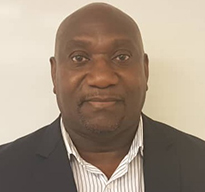
Edward Abban
TrueNorth Protection Solutions

Philomina Donkor
Ghana National Petroleum Corporation
Presenter(s):

Francis Wajah
Aker Energy

Edward Abban
TrueNorth Protection Solutions
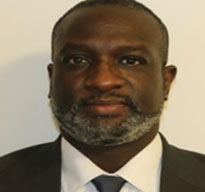
Iliyasu Bagna
Oil Producers Trade Section Nigeria (OPTS)/TOTAL Nigeria
Presentations:
1615-1635
The Meaning of ‘’S’’ in the HSSE Concept
Francis Wajah, Aker Energy
1635-1655
The Perceived Dichotomy of Safety and Security in the Upstream Oil and Gas Sector
Edward Abban, TrueNorth Protection Solutions
1655-1715
Mitigating Security Challenges to Nigeria's Oil and Gas Sector
Iliyasu Bagna, Oil Producers Trade Section Nigeria (OPTS)/TOTAL Nigeria
The perceived inadequacy in the recognition of security in the oil and gas sector in the region compared to other industries, for e.g. the aviation and shipping industries seem to be lengths ahead.
As a major industry supporting the economies of several countries with international dependency, much more needs to be done to ensure that the attractiveness of the whole value chain of the industry as a target for piracy and terrorist attacks must be effectively prevented and mitigated.
Production infrastructure (rigs, FSOs, FPSOs, platforms), loading and offloading facilities, crude oil transportation (tankers, pipelines), and refineries all do face potential security risks of which the impact could affect the entire supply chain of the industry with very high costs.
The security threats faced by the industry include piracy, terrorism, cybersecurity, sabotage by internal or external actors, civil protests, cross-border hostilities, and vandalism. These threats have the potential of severe harm to people, the environment, economies and by extension, the international stakeholders of the industry.
Oil and gas operators must avail adequate resources to security as is traditionally given to “safety”. The two are tightly inter-related and could result in the same or similar consequences. Security risk assessments are required to identify and qualify threat origins, scenarios, and threat actors which should lead to the implementation of robust multi-layered security measures, with an effective response mechanism that is trained to be prepared and capable.
Session Co-Chair(s):

Blessing Ejiro Inubiwon
Heritage Energy Operational Services Limited
Charles Kwaku James
The Petroleum Commission
Presenter(s):

Adetoun Mustapha
Shell Nigeria E&P
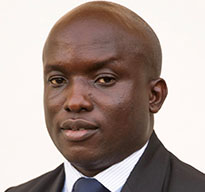
Temitope Oshuntuyi
Mobil Producing Nigeria Unlimited
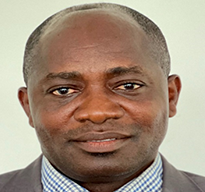
Emmanuel Okpale
Department of Petroleum Resources
Presentations:
1740-1800
Cross-Functional Integration as an Enabler for HSE Performance
Adetoun Mustapha, Shell Nigeria E&P
1800-1820
Organisational Management & Leadership as Drivers for Regulatory Compliance
Temitope Oshuntuyi, Mobil Producing Nigeria Unlimited
1820-1840
DPR Strategy for Improved Safety Compliance in the Nigerian Oil & Gas Industry
Emmanuel Okpale, Department of Petroleum Resources
Regulations have been a longstanding enabler for compliance in oil and gas operations. While companies in the region display regulatory compliance as core business values, some of these companies are unaware of the scope and magnitude of these regulatory requirements and are not properly equipped to ensure compliance.
Statistics show non-compliance to regulatory requirements and standards as a major reason for incidents and losses within the industry. Because regulatory bodies define industry trends and remain key stakeholders, there is a need to discuss challenges and propose new ideas towards effective compliance in the petroleum sector. Regulatory compliance features in the four broad areas of the workshop:
- Process safety and asset integrity management.
- Cross-functional integration as enabler for HSE performance
- Managing multiple regulatory expectations
- Risk management in a regulatory framework
This session aims to guide participants in the rudiments across focus areas to avoid, pitfalls, remove ambiguities, misinterpretation, and continually improve.
The topics for the session include:
- Achieving compliance through cost-effective technology.
- Optimising compliance in marginal field operations.
- Getting the oil and gas industry to self-regulate.
- Simplifications for laws and standards.
- Codes and practices.
- Oil spill response and its management.
- Organisational management and leadership as drivers for regulatory compliance.
Participants drawn from experts, safety professionals, [OB3] and practitioners will find the session engaging, rewarding, and stimulating. The session seeks solutions that simplify and interpret regulatory requirements to improve safety performance in Africa.
